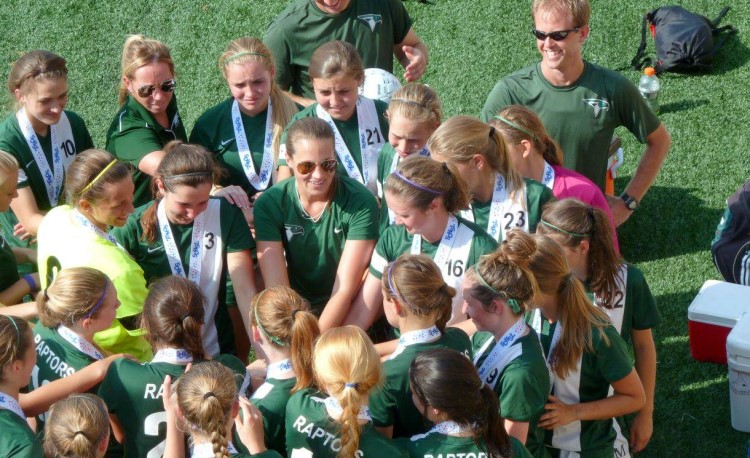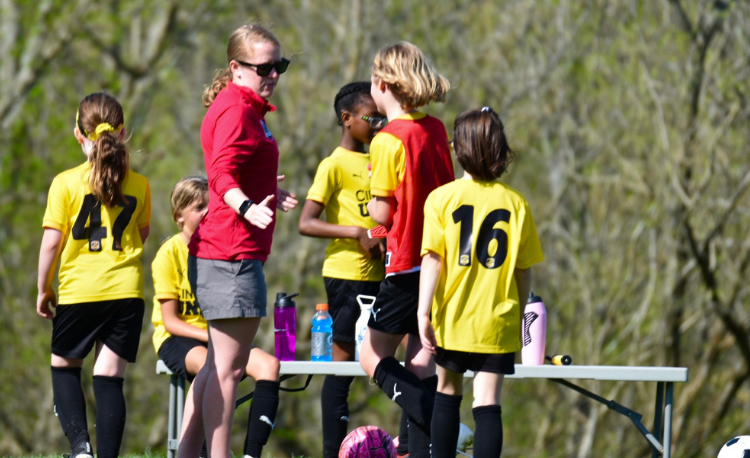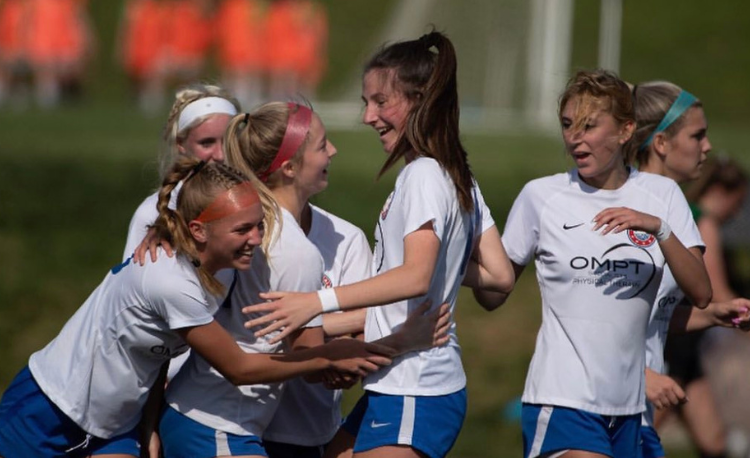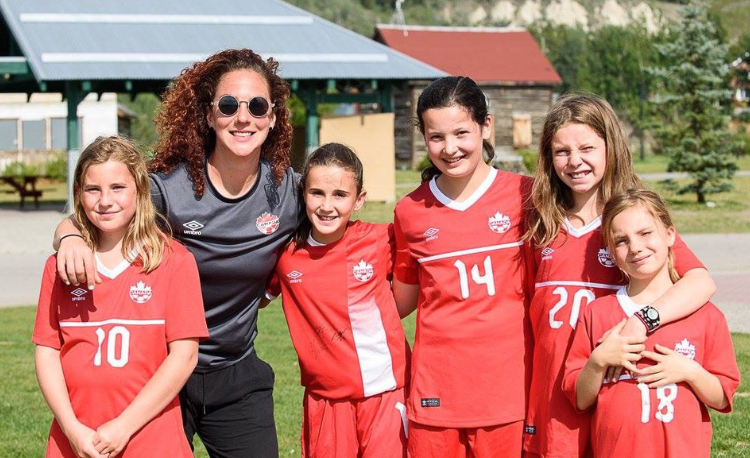You are viewing
1 of your 3 free articles
How to manage and de-escalate conflict
A break down in team harmony can derail your season. Award-winning US high-school coach Anna Nethery discusses six ways to tackle problems head on.
As a coach, you may have your team in top form, with an excellent gameplan, and a winning season on the horizon - but nothing can torpedo a well-tuned ship faster than internal conflict.
Whether it’s a player disgruntled by lack of playing time or a change in role, two team-mates who can’t find common ground or a player-coach power struggle, these situations cause turmoil within a group.
If they are not handled properly, they can be cancerous to an otherwise healthy program and can spell disaster for your season.
Instead of sweeping it under the rug and hoping for the best, here I can offer six actionable tips to meet the conflict head-on, in order to resolve the issue before it takes hold and undermines the effectiveness of your team.
Establish a culture of trust
From the outset of the season, set clear expectations around trust and communication.
If players know you have an open-door policy and welcome feedback, they will trust you to bring issues to light quickly, before they start to fester.
In a pre-season meeting, try saying: “My door is always open for feedback and I will always assume positive intent.
"From the outset, set clear expectations around trust and communication..."
This means I will assume you and I have the same goals: to have a fun and successful season. If we always start from that page, there’s nothing we can’t work through together”.
Model humility
The successful resolution of any conflict almost always requires at least one person to start with those dreaded words: “I’m sorry”.
If a young player is expected to own up to a mistake they have made or take the higher ground, she must first see this modelled by her coach.
Find opportunities to show your athletes that saying “I’m sorry” is not a sign of weakness, but, rather, leadership.
If a training session didn’t go as planned, you got lost driving the team bus and made them an hour late or, heaven forbid, you lost your temper at a referee, model an open, honest and sincere apology.
There is no need to go on and on and beat yourself up. Keep it simple and say something like: “Hey girls, yesterday I lost my cool and yelled at the ref about that offside call. It wasn’t right. I expect more from myself and I’m sorry I didn’t uphold our team’s values in that moment. I’ll do better. Now let’s go have a great practice!”
Remember, this might be the first time your players have heard an adult apologize. Think of the powerful lesson it can provide, and you will be paving the way for them to follow your lead later.
Three-invite collaboration and empowering athlete leaders
The best way to handle conflict? Don’t! Have your captains do it instead - with guidance, of course.
Empower your captains to be more than just the girls leading the stretches and going to the coin toss. Meet with them regularly to keep your pulse on team dynamics and think about how to facilitate their growth as leaders.
As situations arise, ask them what they think is the best solution. Then, if applicable, play out the confrontation with them ahead of time, giving them the chance to practice the delicate art of addressing conflict with a team-mate.
Often, players will feel more comfortable discussing a problem with their peers rather than their coach and you will be simultaneously equipping those young leaders for the future - which is pretty much the whole point of a coach, right?
Praise publicly, scold privately
This is old advice but, nevertheless, deeply important, especially if you coach females.
Social standing and connection with others is paramount to young girls. As a coach, your methods will be far more successful if you help your players save face and maintain standing among their peers.
If you need to correct or redirect a behaviour, make sure to do it privately. If you haven’t read Catch Them Being Good, a book by the legendary former US women’s national team coach Tony DiCicco and psychologist Colleen Hacker, do yourself a favour and order a copy for your entire coaching staff immediately.
SBI - situation, behaviour, impact
This model for addressing conflict, often used in a corporate setting, can be extremely effective to help keep a confrontation from getting personal or off-course.
"Your methods will be more successful if you help players maintain standing with peers..."
Start first by explaining the situation or context, then state the person’s specific behaviour and finally explain the impact of that behaviour.
A good example might follow this format: “Yesterday, when we were preparing for the shooting drill [situation/context], you made the comment that we ‘always do that drill’ and you ’hate it’ [behaviour]. The impact of your comment was that your team-mates lost enthusiasm for the activity and we all missed the chance to practice that skill [impact].”
This model helps keep the conversation focused and less emotionally charged.
Looping back to the ’assume positive intent’ strategy, you could follow this up with: "I know you and I have the same goals for our team: to have a fun and successful season. I really do value your feedback. Could we work together to find another way for you to give feedback that would be less disruptive to our training sessions?”.
Set a specific re-evaluation date
Whether it was a situation you handled directly, or one you allowed your captains to take, at the conclusion of the discussion, set a specific date for a follow-up.
Don’t assume that just because it was addressed once that you can now sail through the rest of your season.
A week is typically the right amount of time. Say: “Now that we’ve talked this over, I feel like we have a good plan moving forward. Do you? Let’s set a time to meet about this again, one week from now, and we can re-evaluate the progress we’re making and adjust as needed.”
Just like a doctor checks back a few weeks later on the side effects of a new medication, it is important to evaluate the efficacy of your intervention and modify if needed.
Keeping a healthy pulse on these dynamics will help ensure a smooth and, hopefully, drama-free season.
Related Files
Newsletter Sign Up
Newsletter Sign Up
Discover the simple way to become a more effective, more successful soccer coach
In a recent survey 89% of subscribers said Women's Soccer Coaching makes them more confident, 91% said Women's Soccer Coaching makes them a more effective coach and 93% said Women's Soccer Coaching makes them more inspired.
*includes 3 coaching manuals
Get Inspired
All the latest techniques and approaches
Women's Soccer Coaching offers proven and easy to use soccer drills, coaching sessions, practice plans, small-sided games, warm-ups, training tips and advice.
We've been at the cutting edge of soccer coaching since we launched Soccer Coach Weekly in 2007, creating resources for the grassroots youth coach, following best practice from around the world and insights from the professional game.








